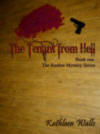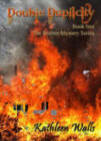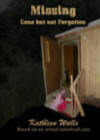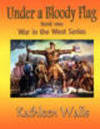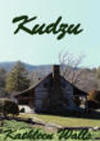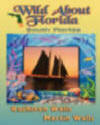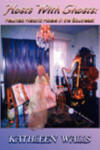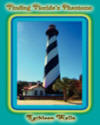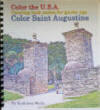Bristol: Birthplace of Country Music
Kathleen Walls
Birthplace of Country Music in Bristol,
Virginia/Tennessee has a fantastic history behind it. The
Museum tells how country music was recognized as a genre at the
famous 1927 Bristol Sessions. It’s an amazing story.
History
Ralph Peer, who was a producer for Victor
Talking Machine Company, later RCA Victor, wanted to record
“Hillbilly music” using the newest electrical recording
equipment developed in 1925. Records were the big new thing
then. He asked Ernest Stoneman, who was already playing and
recording for Victor with his wife, Hattie, where would be the
best place to set up the recording sessions that became known
as the
Bristol Sessions?
He decided on Bristol because with Johnson
City and Kingsport, Tennessee, it formed the Tri-Cities, then
the largest urban area in the Appalachians. At the sessions,
Peer recorded 76 songs by 19 performers or groups. Particularly
interesting is that after we progressed through vinyl records,
to eight tracks, cassette tapes, then CDs, now records are once
again popular.
Remember, although due to segregation and
the mores of that time, music was classified by race, there was
already a big crossover of music. The banjo, an African
instrument, was common in “Hillbilly bands” of the time. The
blues, considered “race music,” melded into much so-called
white music. El Watson was the only African American artist to
record at Bristol Sessions. He recorded “Pot Licker Blues” and
“Cold Penitentiary Blues” backed by white musician Charles
Johnson, who played guitar on Watson’s recordings. Watson, in
turn, played bones on a few songs recorded by the Johnson
Brothers. These are some of the earliest integrated recordings
of country music.
Carter Family
Two of the most revered names in country
music came out of the 1927 sessions, Jimmy Rogers and The
Carter Family. A.P. Carter traveled around the Appalachians
collecting the old-time ballads brought from mostly Scotland
and Ireland by settlers both before and after the Bristol
Sessions. He traveled the remote areas collecting songs with a
Black one-legged guitar player named Lesley Riddle. Riddle had
an almost photographic memory. Once he heard the song, he could
later write out the music.
A. P., his wife, Sara, and Maybelle
Carter, A.P.’s brother’s wife, and Sara’s cousin, recorded six
songs “Bury Me Under The Weeping Willow,” “Little Log Cabin By
The Sea,” “The Poor Orphan Child,” “The Storms Are On The
Ocean,” “Single Girl, Married Girl,” and “The Wandering Boy” in
Bristol in 1927.
A great place to learn more about the
Carter Family is the
Carter Family Fold in Hiltons, Virginia.
Jimmie Rodgers
Jimmie Rodgers is known as “The Father of
County Music.” He’s also called “The Singing Brakeman,” and
“The Blue Yodeler.” He was born James Charles Rodgers on
September 8, 1897, at Pine Springs, Mississippi, just north of
Meridian. Much of his music resembled the blues and there’s
some cross over with jazz. Louis Armstrong played trumpet in
Jimmie Rodgers’ “Blue Yodel #9.”
Like his music, his life is a mix of
triumphs and tragedies. His mother died when he was around six.
By 13 he organized singing troupes and ran away twice. His
father brought him back, and eventually he went to work for the
railroad. It was here he heard the songs of the Gandy Dancer,
African-American railroad workers who installed the rails, that
were later part of his music. In 1924, they diagnosed him with
tuberculous. It ended his railroad job and left him free to
pursue his music.
When he heard about Peer’s recording
session, he applied. He recorded “The Soldier’s Sweetheart” and
“Sleep, Baby, Sleep.”
His
museum in Meridian, Mississippi is also a fascinating place
to visit.
Museum Exhibits
Downstairs there is a special exhibit
called I’ve Endured: Women in Old-Time Music. It
showcases women musicians you may never have heard of, like
Aunt Samantha Bumgarner and Jean Richey. They tell the story of
the banjo, a traditional African instrument. Exhibits show
difficulties women had to endure to move forward with music. It
showcases some vintage clothing and instrument women wore or
played over the years. This special exhibit will be here until
the end of this year.
When you first enter the museum on the
second floor, you are treated to a video telling the history.
Country music, as it emerged in the next few years, was a
fusion of the white mountain ballads brought over mainly from
Scotland and Ireland and the African-American blues. Many of
the exhibits at the museum focus on those early artists.
You can listen to the original recordings
of many of the Session’s songs. There's an exhibit of oral
histories of people who were there during the sessions. There
is even a studio where you can record your own version of one
of the songs.
I loved the large collection of banjos at
the museum. Many of them belonged to famous musicians,
including one that belonged to
Earl Scruggs.
Another case is filled with vintage
guitars. One guitar was Jimmy Rogers’ which he used in his
“Blue Yodel #9.” Another exhibit has a collection of
instruments ranging from Jew’s harp, harmonica, mandolin, and
many others.
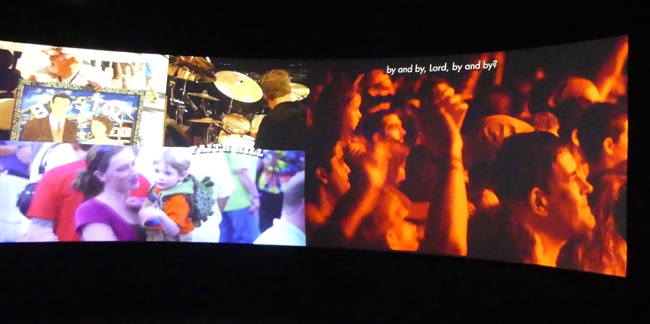
One video at the museum is amazing. In the
May the Circle be Unbroken Theater, as the old song
plays, the surround screen shows the multitude of musicians who
have sung and recorded the song. Beginning with The Carter
Family, there is the next generation of June Carter Cash and
Johnny Cash, then Willie Nelson, Lynyrd Skynyrd, Bruce
Springsteen, The Eagles, and so many others.
There’s an old-time church telling the
connection of spirituals with country music.
There is a temporary exhibit about one of
Bristol’s native sons, Tennessee Ernie Ford. I wasn’t aware his
song, “Sixteen Tons” caused so much controversy. Mining
interests wanted it banned. Aside from his recordings, he was a
radio and tv show host.
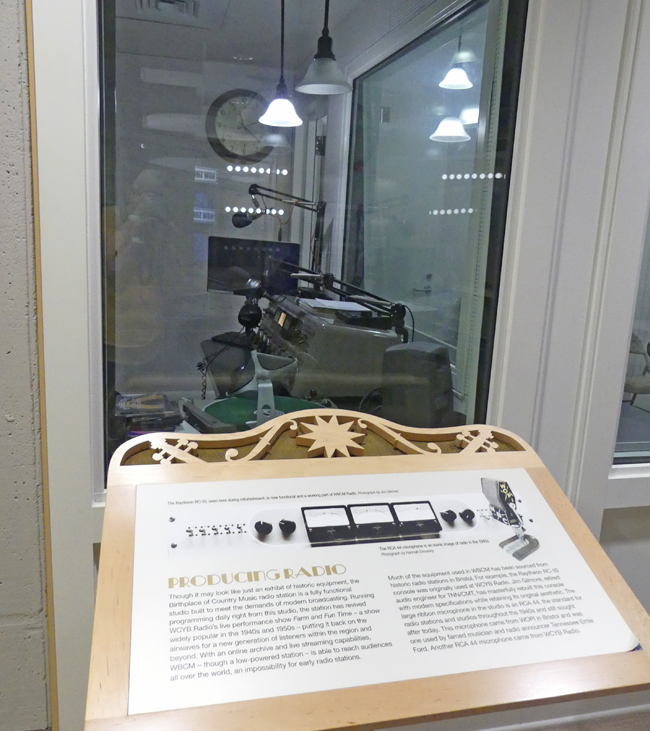
There is even a fully operational radio
station that operated form themusuem plus so many interesting
exhibits here plan to spend a few hours.
At the Library of Congress National
Recording Registry in 2002, they ranked the 1927 Bristol
Sessions among the 50 most significant sound recording events
of all time and officially named Bristol “The Birthplace of
Country Music.”
Public Disclosure-- Please Read
The FTC has a law requiring web sites to let their readers know if any of the stories are "sponsored" or compensated. We also are to let readers know if any of our links are ads. Most are not. They are just a way to direct you to more information about the article where the link is placed. We have several ads on our pages. They are clearly marked as ads. I think readers are smart enough to know an ad when they see one but to obey the letter of the law, I am putting this statement here to make sure everyone understands. American Roads and Global Highways may contain affiliate links or ads. Further, as their bios show, most of the feature writers are professional travel writers. As such we are frequently invited on press trips, also called fam trips. On these trips most of our lodging, dining, admissions fees and often plane fare are covered by the city or firm hosting the trip. It is an opportunity to visit places we might not otherwise be able to visit. However, no one tells us what to write about those places. All opinions are 100% those of the author of that feature column. .

















